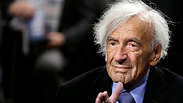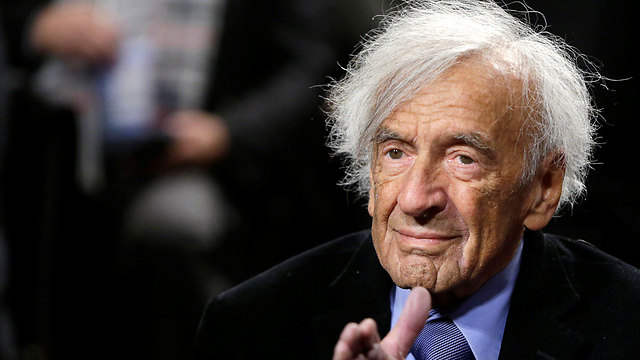
Elie Wiesel (Photo: Reuters)
צילום: רויטרס
Goodbye my friend, Elie Wiesel
Op-ed: Noam Klieger, a long-time friend of the late Elie Wiesel, who found out after the Holocaust that the two had been in the same barracks in Auschwitz 3, says it is difficult to find the words to say goodbye to a giant, a prolific scholar and a champion of the Jewish cause.
How do you write about the death of a giant? How do you say goodbye to one of the greatest authors, philosophers, and most knowledgeable people of the 20th century?
Elie Wiesel, a Nobel Laureate, one of the greatest contemporary fighters for Judaism and the memory of Holocaust victims in particular, passed away in New York at the age of 87, after suffering from a prolonged illness.
I use the word giant, but this is not the correct description for a man who, among the dozens of titles received from different countries, was also the recipient of honorary doctorates from dozens of universities across the globe.
Elie Wiesel was my friend from the moment we first met in 1946 in Paris. Only then did we realize that for several months we had been in the same “block” of barracks in Auschwitz 3.
He was born in Sighetu Marmației, a city on the border between Hungary and Romania. His mother tongue was Yiddish.
I, born in Paris, had already been in the same horror camp for a long time. We became friends then in Paris 70 years ago and our friendship endured right up until his passing.
One of the things to which I dedicated my life was the commemoration of the victims of the Holocaust. The biggest compliment I ever received in my life was when he wrote that I work even harder than he does on this special subject.
So how do I write about such a giant like this. What words can I use? I do not know. Goodbye Elie, my friend.











